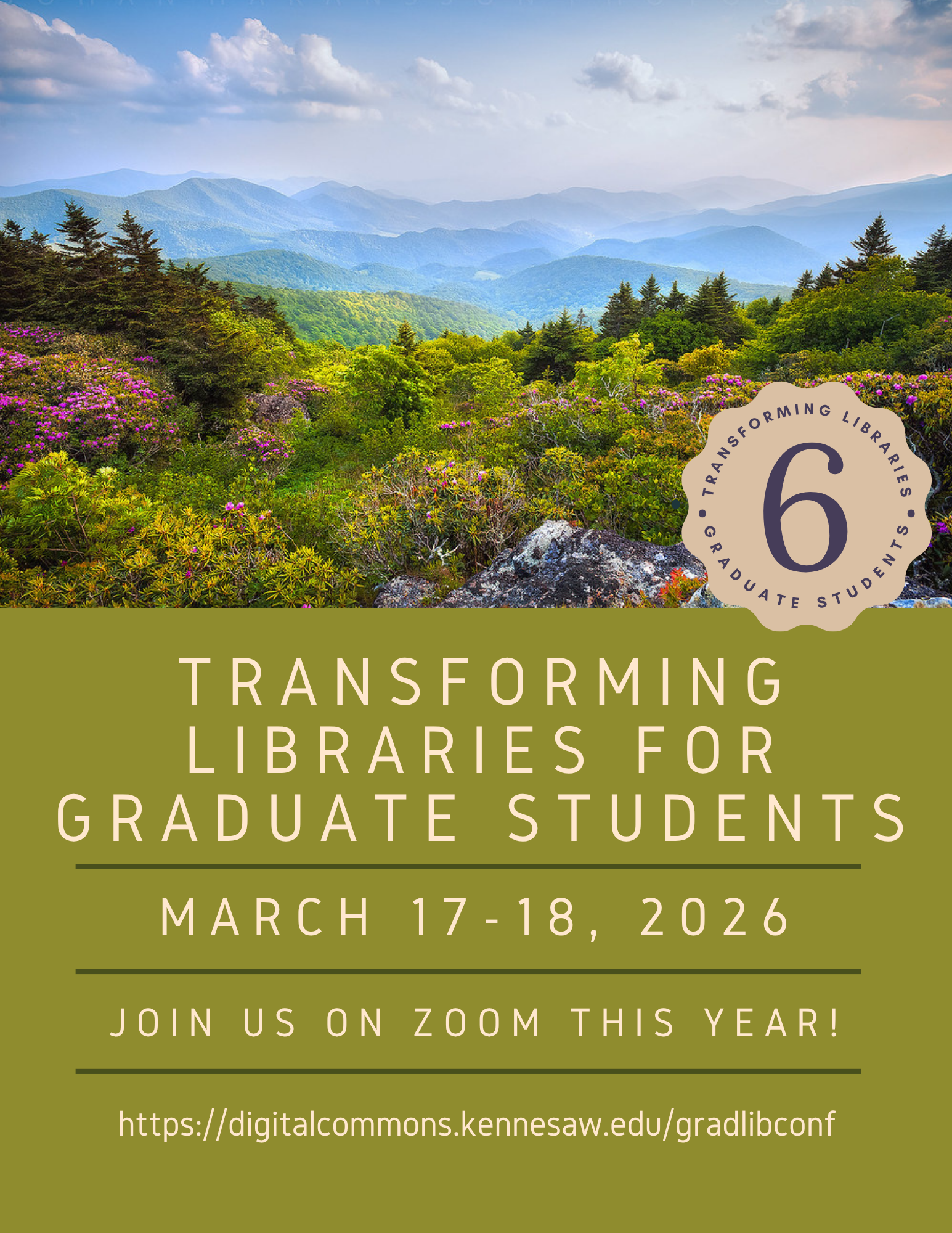Building an Archival Literacy Program for Graduate Students at Emory University
Start Date
3-22-2018 2:30 PM
End Date
3-22-2018 4:00 PM
Description of Proposal
Graduate students in the humanities and social sciences rarely receive formal departmental training in archival literacy. Even disciplines that rely heavily upon archival evidence devote surprisingly little time to the nuts and bolts of finding and using rare book and manuscript collections. [1] Academic libraries are uniquely positioned to fill this gap in the curriculum. This workshop will explore how to organize and implement a graduate training program in archival literacy at your institution by modeling one successful initiative, The Archives Research Program (ARP) at Emory University. This joint project of the Stuart A. Rose Manuscript, Archives, and Rare Book Library and the Robert W. Woodruff Library consists of workshops and speaker series that seek to build graduate students’ proficiency and confidence when using archives. Through the program, graduate student participants acquire a greater understanding of professional archival standards, develop research skills necessary for success within their disciplines, and build useful connections with librarians and archivists. Workshop topics cover all aspects of the research process and include archival arrangement and description, archives culture and etiquette, finding archives, using digitized collections, understanding born digital collections, creating a research plan, applying for travel and research funding, care and handling of archival materials, and productivity tools for archives. Since its founding in 2014, 100% of graduate student participants responded that they would recommend the workshop to their colleagues. After a brief discussion of the Archives Research Program’s development, implementation, and lessons learned, participants of this hands-on workshop will be introduced to the program’s curriculum and will work to adapt it for their libraries. At the end of the workshop, participants will be able to assess the needs of their graduate student populations, identify institutional partners, create an initial timeline and marketing plan, and select relevant modules to begin building their own archival literacy programs. [1] Matthew P. Long and Roger C. Schonfeld, "Preparation for the Future of Research in Art History: Recommendations from the Ithaka S+R Report," Art Documentation: Journal of the Art Libraries Society of North America, 33 (2014:) 192-205.
Building an Archival Literacy Program for Graduate Students at Emory University
RM 182
Graduate students in the humanities and social sciences rarely receive formal departmental training in archival literacy. Even disciplines that rely heavily upon archival evidence devote surprisingly little time to the nuts and bolts of finding and using rare book and manuscript collections. [1] Academic libraries are uniquely positioned to fill this gap in the curriculum. This workshop will explore how to organize and implement a graduate training program in archival literacy at your institution by modeling one successful initiative, The Archives Research Program (ARP) at Emory University. This joint project of the Stuart A. Rose Manuscript, Archives, and Rare Book Library and the Robert W. Woodruff Library consists of workshops and speaker series that seek to build graduate students’ proficiency and confidence when using archives. Through the program, graduate student participants acquire a greater understanding of professional archival standards, develop research skills necessary for success within their disciplines, and build useful connections with librarians and archivists. Workshop topics cover all aspects of the research process and include archival arrangement and description, archives culture and etiquette, finding archives, using digitized collections, understanding born digital collections, creating a research plan, applying for travel and research funding, care and handling of archival materials, and productivity tools for archives. Since its founding in 2014, 100% of graduate student participants responded that they would recommend the workshop to their colleagues. After a brief discussion of the Archives Research Program’s development, implementation, and lessons learned, participants of this hands-on workshop will be introduced to the program’s curriculum and will work to adapt it for their libraries. At the end of the workshop, participants will be able to assess the needs of their graduate student populations, identify institutional partners, create an initial timeline and marketing plan, and select relevant modules to begin building their own archival literacy programs. [1] Matthew P. Long and Roger C. Schonfeld, "Preparation for the Future of Research in Art History: Recommendations from the Ithaka S+R Report," Art Documentation: Journal of the Art Libraries Society of North America, 33 (2014:) 192-205.



What takeaways will attendees learn from your session?
Graduate students in the humanities and social sciences rarely receive formal departmental training in archival literacy. Even disciplines that rely heavily upon archival evidence devote surprisingly little time to the nuts and bolts of finding and using rare book and manuscript collections. Academic libraries are uniquely positioned to fill this gap in the curriculum. This workshop will explore how to organize and implement a graduate training program in archival literacy at your institution by modeling one successful initiative, The Archives Research Program (ARP) at Emory University. This joint project of the Stuart A. Rose Manuscript, Archives, and Rare Book Library and the Robert W. Woodruff Library consists of workshops and speaker series that seek to build graduate students’ proficiency and confidence when using archives. Topics include archival arrangement and description, archives etiquette, finding archives, using digitized collections, understanding born digital collections, travel and research funding, care and handling, and productivity tools for archives. Since its founding in 2014, 100% of student participants responded that they would recommend the workshop to their colleagues.
After brief discussions of the program’s development, implementation and lessons learned, participants in (this hands-on workshop will be introduced to the program’s curriculum and will work to adapt it for your library. At the end of the workshop, you will be able to assess the needs of graduate student populations, identify institutional partners, and select relevant modules to begin building your own archival literacy program.